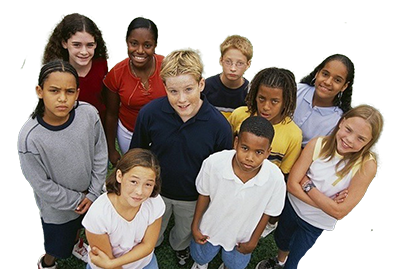About Us
About Valerie A. Ubbes, PhD, MCHES
Email: ubbesva@miamioh.edu
Hello, my name is Dr. Valerie Ubbes, and I am the project director and designer of the Digital Learning Partnership which houses three databases and one oral health literacy curriculum. I am a Master Certified Health Education Specialist and a Professor in the Department of Kinesiology and Health at Miami University in Oxford, Ohio. My scholarship focuses on health literacy – both print and electronic materials – with a goal to give people access to valid and reliable information for their health and well being.
After developing the Children's Picture Book Database at Miami University as a tool for designing literature-based thematic units for all academic subjects, I adopted a Web II approach to my teaching and scholarship. In my classes with education and health students, I began to craft templates for Electronic Texts for Health Literacy© that more specifically promoted health-related skills and behaviors through interwoven visual and textual themes. Social cognitive theory (Bandura,1983) informed my design of the Electronic Texts for Health Literacy© because authentic environments and social interactions play significant roles in whether individuals have the personal knowledge, motivation, and beliefs to be healthy. The Theory of Reasoned Action also informs the design of more recent versions of E-Texts because we write scripts based on salient beliefs that determine one's intentions to do a behavior. Salient beliefs include health outcome beliefs, normative beliefs, and self efficacy beliefs.
Miami University students engage in academic service learning when they use my design templates to craft and share their own Electronic Texts for Health Literacy© and Public Service Announcements which are housed on a new platform called the Health Advocacy Database at Miami University. My undergraduate students are encouraged to "serve as they learn" the complexities of health communication message design by working through an extensive editorial process with me - similar to a peer-review process that teacher scholars experience when writing and tailoring messages to a specific audience or learner. Ultimately, through my constructivist inquiry-based approach (Vygotsky, 1978; Ubbes et al, 1999; Ubbes, 2008), future education and health professionals gain an appreciation for how written, oral, and body language inform health literacy, a major determinant of health status and quality of life (Ubbes, 2014).
I hope you enjoy our print materials (e.g., the Children's Picture Book Database) and our electronic materials (e.g., eBook for Oral Health Literacy©, Electronic Texts for Health Literacy© and the Health Advocacy Database) as you “educate for health”. Please let me know how our design process and products might support your own work, use, and enjoyment of our Digital Literacy Partnership (DLP) Collections published by the Center for Digital Scholarship at Miami University (Oxford, OH).
ReferencesUbbes, V.A., Black, J.M., & Ausherman, J.A. (1999). Constructing knowledge for understanding in health education: The role of critical and creative thinking skills within constructivism theory. Journal of Health Education, 30(1), 32-38.
Ubbes, V.A. (2008). Educating for health: An inquiry-based approach to preK-8 pedagogy. Champaign, IL: Human Kinetics.
Vygotsky, L.S. (1978). Mind in society (M. Cole, Trans.). Cambridge, MA: Harvard University Press.
